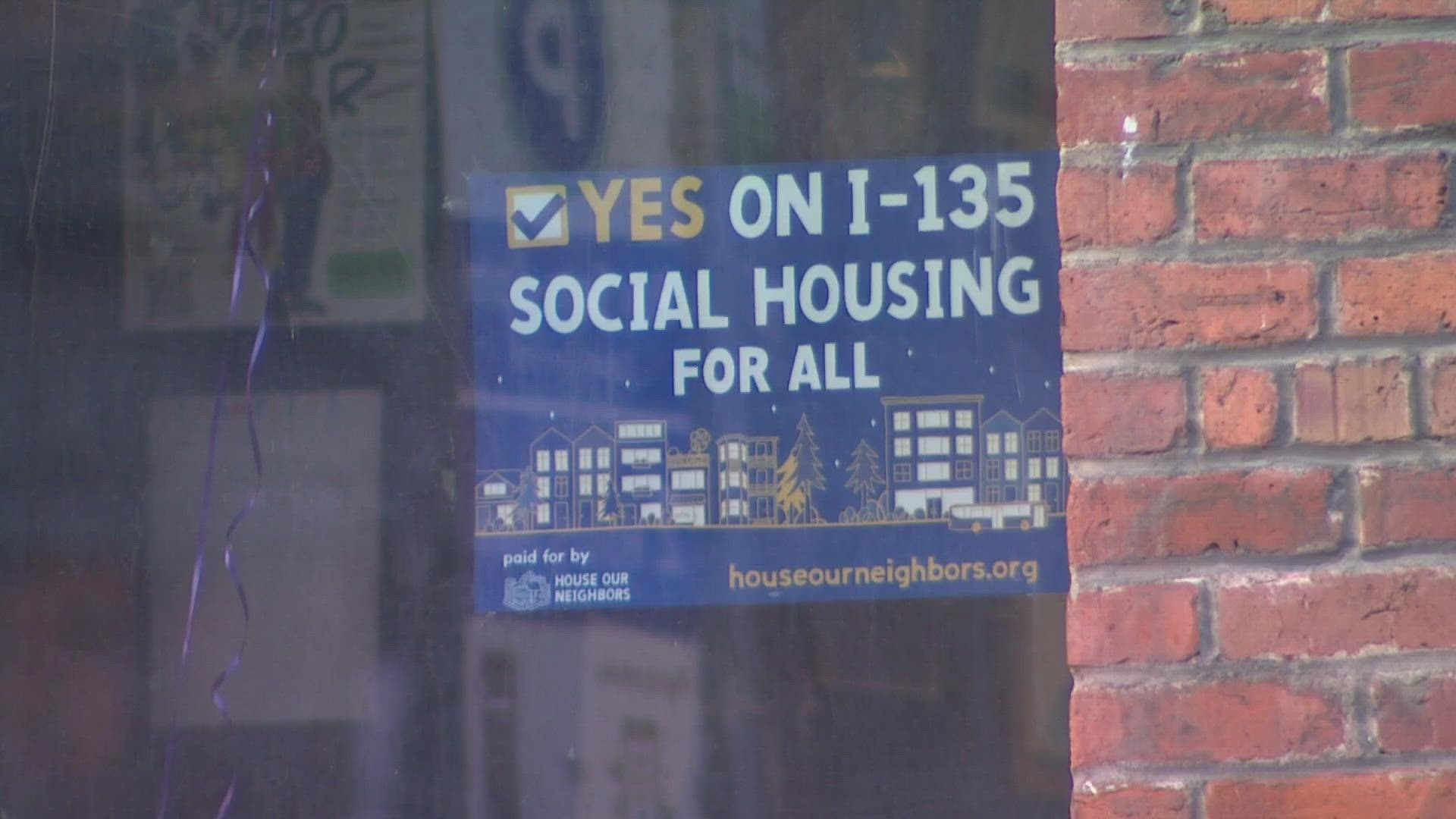SEATTLE — In one week, Seattle voters will decide on a new initiative to address the affordable housing issues across the city. Initiative 135 is the only thing on the ballot and is a petition-led initiative aimed at providing a new “social housing” framework.
The goal is to create more affordable housing, but it’s a different model and something new to the U.S. but widely used across Europe.
“While we’re doing a lot of important investments in affordable housing we have to be honest that it’s not enough,” said Tiffani McCoy, Advocacy Director for Real Change, and campaign director I-135.
Tiffani McCoy and others fought to get I-135 on the ballot and said the measure is another tool to address the housing crisis.
If passed, I-135 would create a "social housing developer" with the city of Seattle. It would develop, own, and maintain publicly owned affordable housing.
Seattleites making zero to 120% of the area’s median income are eligible to live there. According to the census bureau, the median household income is $106,326.
Housing would be permanently affordable so renters won't pay more than 30% of their income in rent, no matter if it changes.
“Having the social housing developer can also tailor to a wider population that's going to be really important to making sure teachers are staying in their communities and nurses are attracted to coming here,” said McCoy.
The passing of I-135 won’t immediately create housing, but the start-up. McCoy said the city of Seattle would fund $750,000 for the first 18 months and some state lawmakers are asking for $1.3 million in the budget for two years of operating costs.
Costs were a previous concern for some groups like the Housing Development Consortium which now said if passed it will partner on the effort.
“Within our association, we have members that have different thoughts and approaches to solutions. and that difference in thought and approach really applies to initiative 135, which is why as HDC, we remain neutral to this ballot measure,” said Patience Malaba, executive director of the Housing Development Consortium.
Malaba said simply there’s not enough housing to meet the need.
“It is disproportionately impacting low-income households. It is increasingly impacting moderate-income households, and disproportionately a lot of those folks are people of color, Black, Indigenous people of color communities. I do think that solutions need to be targeted, to look holistically at ways that we support our communities overall,” Malaba said.
The consortium also points to recent work on JumpStart funds and current pushes for the renewal of the Seattle Housing Levy and King County Veterans, Seniors and Human Services Levy this year.

